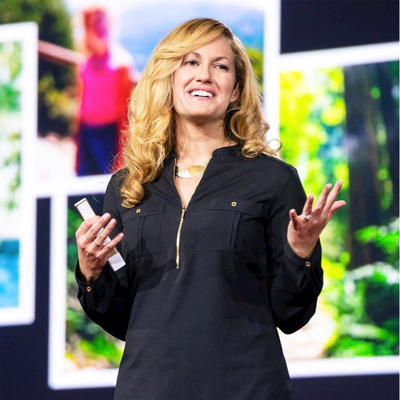What role does innovation play in your company's efforts to address climate change?
At Google, we have a unique opportunity to help lead the transition to a more sustainable future by making information accessible and by driving innovation forward. Grounded in our mission, we are empowering individuals, organizations and governments with quality information through our products and platforms — like Search, Maps, Data Commons, and Google Cloud — that billions of people engage with every day to help make decisions that will drive positive action for our planet. With our deep legacy in research and breakthroughs we’re making in AI, we can give people new ways of accessing information and accelerate innovation to tackle climate change.
How can private companies like Google and policymakers work together to advance innovation for emissions mitigation?
Strong public policy action is critical to creating prosperous, equitable, and resilient low-carbon economies around the world. In 2022, we saw major steps forward on climate policy in the United States, Europe, and other regions. New policy measures and corporate commitments will continue to play an important role in driving emissions reductions in the next decade. There are a number of ways that corporations and policy makers can work together to advance innovation for emission mitigation including but not limited to - Establishing emissions reduction targets and technology-neutral pathways to achieve a low-carbon economy in line with the IPCC’s guidance and scientific consensus. Use competitive, interconnected energy markets to empower consumers and speed up the transition to a clean economy. Accelerate the development and deployment of next generation low-carbon technology, including harnessing digital technologies like AI and machine learning to support climate action across businesses, cities, governments, and civil society.
Sometimes the idea of “climate innovation” can feel very far away. What is one way that Google is already partnering with policymakers to implement innovative sustainability solutions?
For governments developing new climate policies and strategies, we’re building tools to unlock data and inform long-term planning — like our Environmental Insights Explorer (EIE), which provides actionable climate data to more than 40,000 cities and regions worldwide. Since 2019, Dublin City Council has been using EIE to analyze bicycle usage across the city and implement smart transportation policies that improve cycling infrastructure. As part of its City Development Plan, Dublin aims to increase bike trips across the city by up to 20 percent by 2025. By tracking their progress in EIE year-over-year, Dublin can monitor the effects of policy decisions and observe how things change over time. In Houston Texas, they used EIE solar data for a city-wide solar technical assessment to design a proposed 5M MwH target plan as part of its climate action plan—improving access to energy sources, reducing costs for residents, and creating jobs.
The impacts of climate change are already affecting the lives of people around the world. What is one way Google is partnering with policymakers to help everyday people adapt to climate change?
At Google we believe that giving everyone easy access to data can be revolutionary — especially when it comes to solving the world’s most pressing problems like climate change. Now AI is making that data even more accessible. Earlier this week, we shared a preview of an updated Data Commons with a simple conversational interface. The query function is powered by AI, but the answers come straight from Data Commons - one of the world's largest Knowledge Graphs on sustainability, spanning data about climate, health, food, crops, shelter, emissions and more. Additionally, we’re helping people adapt to environmental changes (and stay one step ahead of natural disasters) with tools like flood forecasting and extreme heat alerts. Our flood forecasting initiative is available in 80 countries and uses machine learning models to provide people with detailed alerts. With our AI-powered Flood Hub, a platform that shows when and where riverine floods may occur, we can issue flood forecasts up to seven days in advance for communities in danger.
Google is a Gold Partner at Climate Week NYC. Register virtually and join Google at Climate Week NYC September 17-24.
